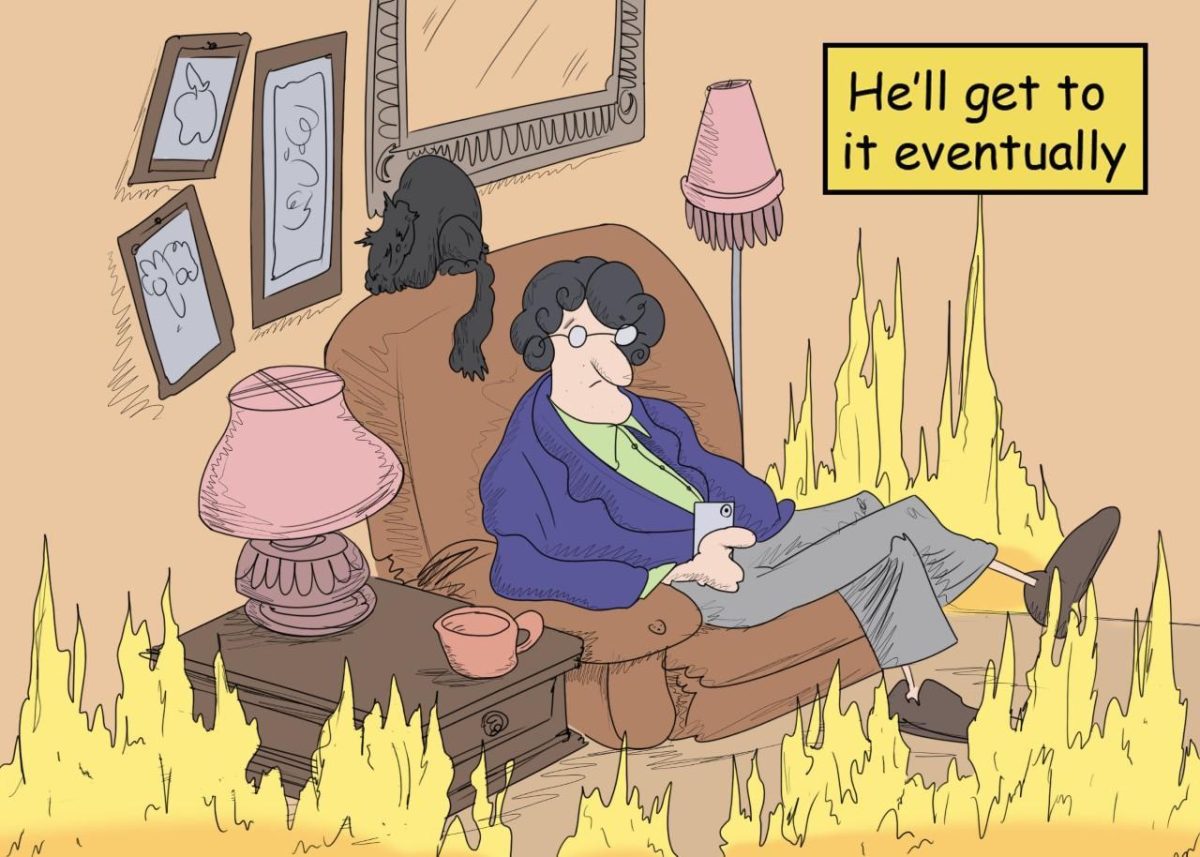Going through your college career, it’s common to feel like you’re trudging your way through the semester.
A semester that started with taking meticulous notes, daily planning and active class participation turns into waiting until the last minute to start on an assignment you’ve had a week to complete.
Some say they love the adrenaline rush that comes with starting late. For me, it turns my brain into a machine capable of locking in on an assignment without pause.
It is addictive in a sense because I feel more efficient with my time. I am able to complete an assignment in a fury while maintaining my time for other things.
The irony here is that I’m writing this on the day I’m scheduled to submit it. In previous days, my mind was not ready to tackle the subject, and yesterday, when I attempted to get a head start, I couldn’t lock into that oh-so-clutch flow state.
The burnout of the semester rages on as I inch closer to finals week, wishing time would fly by. However, I’d be lying if I based my procrastination on where we are in the semester.
I wanted to understand why I complain about the work I’m putting off yet never consider changing my behavior.
After pacing around an empty classroom in Hodges Hall, I came up with three questions explaining my procrastination.
Firstly, do I trust that the education I’m receiving at LSU will prepare me for my dream job? Absolutely not.
Looking at my assignments, I always question whether this discussion post, annotated bibliography or media diary project is of any value to me. Sure, they’re easy grades, but I fail to see how this will help my career.
It’s depressing that Bill Gates, Michael Dell and Steve Jobs were college dropouts. Hell, even Oprah Winfrey and Dick Cheney dropped out, going back years later to complete their education.
College is a good idea for everyone in a perfect world that values knowledge, but with how our economy works; your wallet speaks before your mouth opens.
The point here is that college and your passions will not always align, and even if they do, you must prepare for the financial reality of the world.
It is tough for me to understand that my passions in life may not serve my financial goals of buying a home, taking frequent vacations and providing an abundant lifestyle for my children. And spare me the “love is all they need” line.
Secondly, do I believe in myself? This one was tough because everyone wants to believe that they have some level of confidence.
The inner dwellings of our minds are masked with personas the world sees, which protects us from exposing ourselves to everyday people. I had to recall the poor performances I’ve given in job interviews, the hesitation to counter an argument I hear in class or the faith behind my journalism aspirations.
Lastly, is my anxiety really that bad? This one was funny to think about because the term gets hot potatoes around so much that it blurs the line of what real anxiety looks like.
When you’re envisioning and working toward your future career, it’s hard to feel certain whether your anxiety is medically diagnosable.
According to the APA, the key to spotting anxiety is through the “absence of a stressor.” If your anxiety goes away at times, you are probably situationally anxious.
Nevertheless, procrastination is a deep subject taken lightly by society. The easy route would be to advise you to avoid the person who chalks it up to laziness, but they may have a point.
You may be in college for reasons other than you want to be there. You may need to consider other options and allow college to present itself as the best option for you.
Suppose you realize college is right for you and you’re still struggling with procrastination; it may be a skill issue.
Researchers found that students unable to manage their time are likely to procrastinate. Visit the student success center if this is an issue for you because not everyone has the best study habits growing up.
From here, you’ve realized college is right for you, visited the success center and are still struggling. Maybe it’s an issue you should take up with a therapist. Researchers have found a link between low self-esteem and procrastination.
As Carleton University professor Tim Pychyl put it, “We have to recognize that procrastination is not a time management problem, it’s an emotion regulation problem.”
We need to start approaching our procrastination with a bit more focus, looking internally and asking ourselves how anxious and uncertain we are about our future.
Our feelings of failure, self-doubt and perfectionism are all things to be considered rather than judging ourselves as if, after all the work it took to make it into college, we’re somehow lazy. Procrastination is just another human issue that some will have to tackle.
Mohammad Tantawi is a 24-year-old mass communication senior from Smyrna, Tenn.











